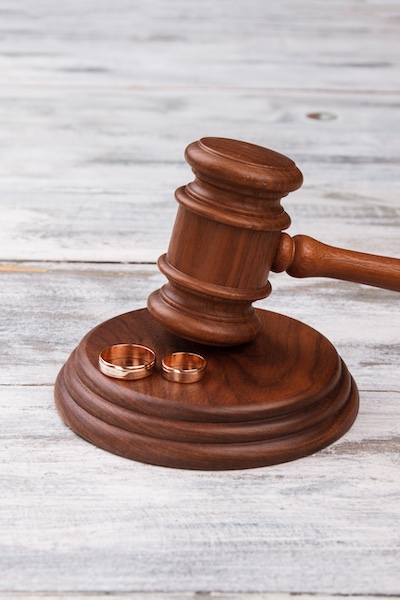Divorce is one of the most emotionally and financially challenging experiences a person can go through. While it is often difficult to separate emotions from financial matters, protecting your assets is crucial to securing your financial future. If you are going through a divorce in New Jersey, understanding state laws and seeking the guidance of an experienced NJ divorce attorney can make a significant difference in the outcome of your case. Below, we explore essential strategies to safeguard your assets during a divorce in New Jersey.
Understanding New Jersey’s Equitable Distribution Laws
New Jersey follows the principle of equitable distribution, which means that marital property is divided fairly but not necessarily equally. This includes assets such as real estate, retirement accounts, business interests, and investments acquired during the marriage. However, equitable distribution does not apply to separate property, which includes assets owned before the marriage, inheritances, or gifts received individually.
Steps to Protect Your Assets During a Divorce
1. Hire an Experienced NJ Divorce Attorney
The first and most important step in protecting your assets is hiring a qualified New Jersey divorce lawyer. An attorney will guide you through the legal process, help you understand your rights, and ensure that your assets are fairly evaluated and divided. Without proper legal representation, you risk losing a significant portion of your financial assets.
2. Identify and Classify Your Assets
Before filing for divorce, make a detailed list of all your assets. Categorize them into marital property and separate property to determine which assets are subject to division. Key considerations include:
- Bank accounts and investments
- Real estate and properties
- Retirement accounts and pensions
- Business ownership and interests
- Personal property, such as jewelry and vehicles
A NJ divorce attorney can assist you in assessing the value of your assets and determining which ones should be protected.
3. Secure Your Financial Accounts
During a divorce, financial accounts can become a point of contention. Protect your assets by:
- Opening individual bank accounts: If you don’t already have separate accounts, consider opening new ones to prevent your spouse from accessing your funds.
- Monitoring joint accounts: If you have joint bank accounts or credit cards, review statements for unusual transactions and discuss with your attorney the best course of action.
- Setting up automatic payments: Ensure that essential bills and financial obligations are covered during the divorce process to avoid credit issues.
 4. Protect Your Business Interests
4. Protect Your Business Interests
If you own a business, your spouse may be entitled to a portion of its value in the divorce settlement. To safeguard your business:
- Establish a buy-sell agreement: If you have business partners, a buy-sell agreement can help limit your spouse’s ability to claim a share of the business.
- Keep personal and business finances separate: Commingling personal and business funds can complicate asset division.
- Obtain a business valuation: Work with financial experts and your NJ divorce lawyer to get an accurate valuation of your business.
5. Avoid Dissipating Assets
Courts take a strict stance on spouses who attempt to hide or waste assets before or during a divorce. Activities such as transferring money to friends, making large unexplainable withdrawals, or selling assets for less than market value can be viewed as dissipation of assets, leading to legal consequences. A divorce attorney in New Jersey can guide you on lawful asset protection strategies.
6. Understand Retirement Account Division
Retirement accounts, including 401(k)s, IRAs, and pensions, are often divided in a divorce using a Qualified Domestic Relations Order (QDRO). This legal order allows for the division of retirement benefits without tax penalties. Consult with a financial advisor and NJ divorce attorney to understand how your retirement funds will be affected.
7. Review Your Estate Plan and Beneficiaries
If your spouse is listed as a beneficiary on life insurance policies, retirement accounts, or wills, you may want to update these documents after the divorce is finalized. New Jersey law does not automatically revoke a former spouse’s rights to inheritance, so working with an estate planning attorney is essential.
8. Negotiate a Fair Settlement
Rather than letting a judge decide your financial future, consider mediation or collaborative divorce to negotiate a fair settlement. With the guidance of a New Jersey divorce lawyer, you can reach an agreement that protects your financial interests while avoiding a lengthy court battle.
9. Prepare for Post-Divorce Financial Independence
Once your divorce is finalized, take steps to ensure your long-term financial stability:
- Create a new budget to reflect your income and expenses as a single individual.
- Rebuild your credit by paying off joint debts and establishing credit in your name.
- Consult with a financial planner to set financial goals and investment strategies.
Protecting your assets during a divorce requires careful planning, legal guidance, and financial awareness. By working with a knowledgeable NJ divorce attorney, you can ensure that your property is fairly divided and safeguard your financial future. Whether through asset classification, securing financial accounts, or negotiating a favorable settlement, taking proactive steps now can help you achieve a fair and equitable resolution.
If you’re considering divorce in New Jersey, consult with a trusted divorce attorney in NJ to discuss your specific situation and develop a strategy tailored to your needs.

